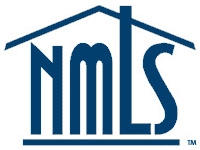GREAT VA LOAN OPTION
This guideline highlight is for those of you that serve the military communities. Many active-duty military serve their 4 years or however long they have been active and then decide to go back to civilian life.
This process can be a bit tricky when you have a family, and the timing needs to be right, or they find the perfect home but are not ready to move there yet.
VA loans give some flexibility in the timeline to be able to move into a home vs the required timeline of 60 days where a borrower must occupy the property which is the case for almost all loans. In addition, VA gives some leniency on the timeline of how long we will accept an offer letter and start date compared to the closing date.
We look at every situation as unique. You may not realize this, but you can actually take up to 12 months before an active-duty borrower has to occupy the property and likewise up to 12 months to use an offer letter.
The norm is definitely 60 days and if you are buying a home in the same area, you are on active duty then you will need to follow the 60-day rule.
Here is an example of when this would apply. You are on active duty with or without a family. You are stationed in Virginia and want to buy their next home in Florida which is close to family and friends. You have 12 months remaining on their tour. You have obtained an offer letter from a company in your same line of work you have in the military, or it is a skilled position you are properly trained for.
You plan on using the home to get ready for their transition. Whether the family moves there while the active-duty member finishes their time with the military, or you just plan on visiting and getting the home ready for your move. No real explanation needed. No, do not tell us they will use it as a rental as that will not likely work.
You can purchase a home proving less than 12 months left on tour and prove a bona fide offer letter in an acceptable position. We will likely take the lesser of the two incomes to calculate debt to income retios as an fyi especially if the date of occupancy and move is significant.
The important piece to know here is to make sure you realize you do have options.
Many will not fit this scenario although for some it can be a great option.
Do I qualify for a VA home loan?
Are you wondering if you qualify for a VA home loan? VA home loans are a great benefit offered to veterans, active-duty service members, and certain members of the National Guard and Reserves. These loans come with favorable terms like no down payment requirements, competitive interest rates, and no private mortgage insurance (PMI).
Basic Eligibility Criteria
The first step in determining if you qualify for a VA home loan is to understand the basic eligibility criteria:
- Service Requirements: Generally, you must have served 90 consecutive days of active service during wartime, 181 days of active service during peacetime, or six years of service in the National Guard or Reserves. Spouses of service members who have died in the line of duty or as a result of a service-related disability may also be eligible.
- Discharge Status: You must have an honorable discharge. Other discharge types may be considered, but they might require additional documentation and review.
- Certificate of Eligibility (COE): You must obtain a COE, which verifies to lenders that you meet the minimum service requirements. You can apply for your COE through the VA’s eBenefits portal, by mail, or through your lender.
Credit and Income Requirements
While the VA does not set a minimum credit score for a VA loan, most lenders will have their own requirements. Generally, a credit score of 620 or higher is favored, although some lenders may accept lower scores. Your income and debt levels will also be assessed:
- Stable Income: Lenders will look for a stable income that demonstrates your ability to repay the loan. This often includes verifying your employment history for the past two years.
- Debt-to-Income (DTI) Ratio: Your debt-to-income ratio should typically not exceed 41%. However, some lenders may allow a higher DTI ratio if you have strong compensating factors, such as substantial savings or a history of responsibly managing higher debt levels.
Property Requirements
The property you intend to purchase must also meet certain standards to qualify for a VA home loan:
- Primary Residence: The property must be your primary residence. Investment properties and vacation homes do not qualify for VA financing.
- VA Appraisal: The home must undergo a VA appraisal to determine its market value and ensure it meets the VA’s minimum property requirements (MPRs). This process ensures the home is safe, structurally sound, and sanitary.
Additional Considerations
There are a few other points to consider when determining your eligibility for a VA home loan:
- Funding Fee: While there is no down payment required, you may need to pay a VA funding fee. This fee helps keep the VA loan program running. The amount can vary based on the loan type, your service history, and whether you make a down payment. Some veterans may be exempt from this fee, such as those receiving VA disability compensation.
- Previous VA Loans: Having a previous VA loan does not disqualify you from obtaining another VA loan. However, your entitlement must be restored or you must have enough entitlement left for the new loan.
VA home loans offer a fantastic opportunity for veterans and service members to achieve homeownership with favorable terms. If you meet the basic eligibility criteria and can demonstrate your financial stability, you could be well on your way to securing a VA home loan.














